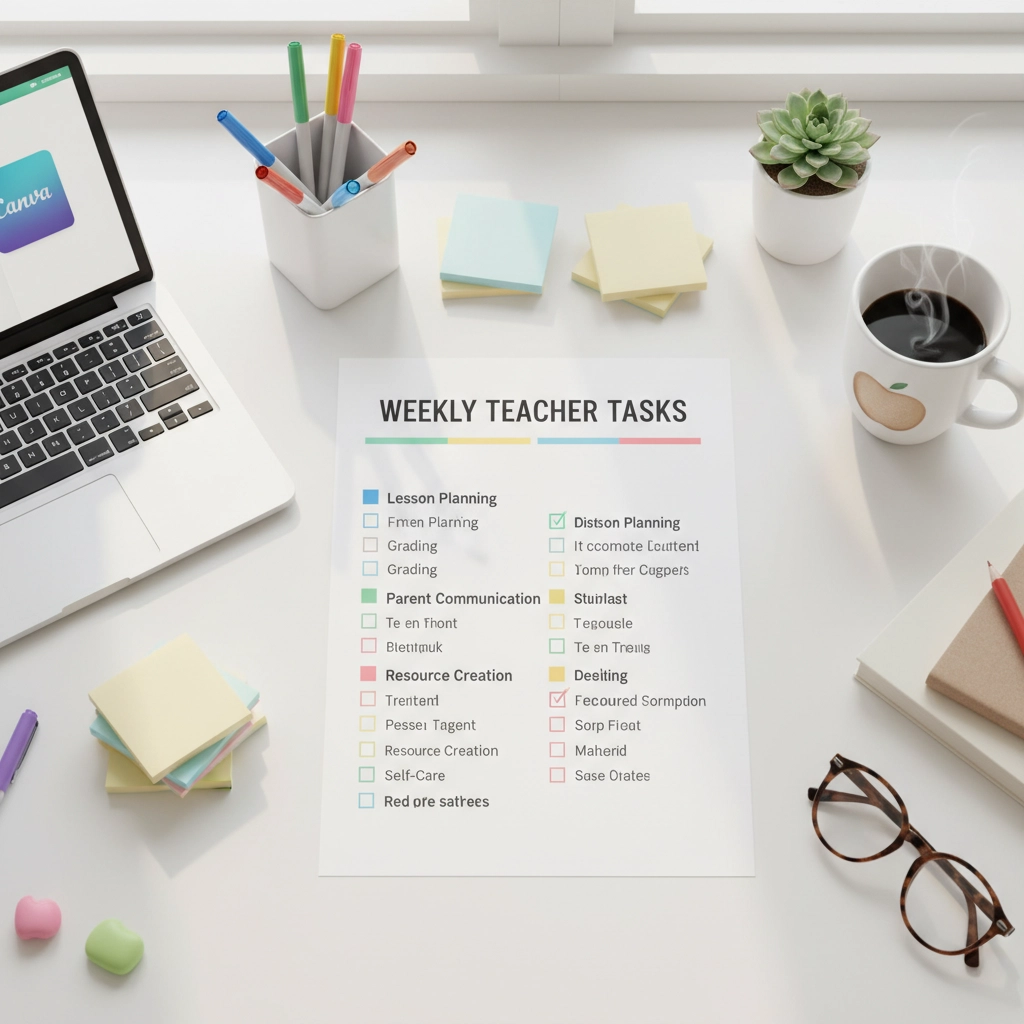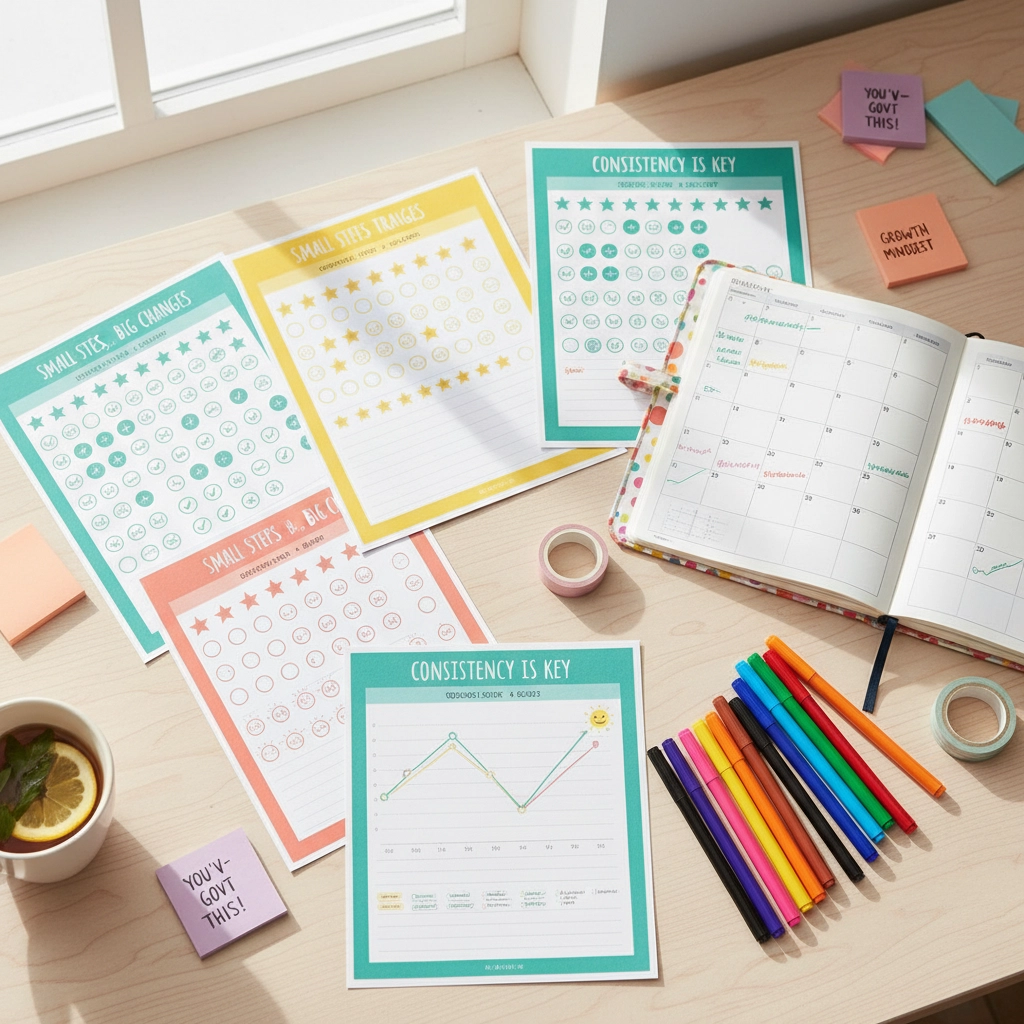Contents
ToggleYou've been there. Scrolling through endless online course platforms, watching other educators launch massive programs, and thinking you need to create the next comprehensive masterpiece to make money online. But here's the truth: you're wasting precious time chasing the wrong goal.
Most teachers get stuck believing they need to build elaborate courses with dozens of modules, fancy video production, and complex tech setups. This approach often leads to months of planning, perfectionism paralysis, and abandoned projects gathering digital dust.
The reality is simpler and more encouraging. You can create profitable digital products that solve real problems in just one weekend. These focused, bite-sized resources often perform better than bloated courses because they deliver quick wins for your audience.
Ready to turn your teaching expertise into income without the overwhelm? Let's explore five digital products you can create, launch, and start selling before Monday morning.
1. Checklists and Cheat Sheets
Your students and fellow teachers face the same challenges repeatedly. Turn your solutions into simple, one-page resources that provide instant value.
Think about the questions you answer most often in your classroom or teacher Facebook groups. These repetitive pain points are goldmines for checklists and cheat sheets.

Create a grammar rules cheat sheet for middle schoolers struggling with punctuation. Design a parent conference preparation checklist for nervous teachers. Develop a test-taking strategies quick reference guide for high schoolers.
The beauty of these products lies in their simplicity. One focused problem, one clear solution, delivered in an easy-to-scan format. You can create these using Canva's free templates in just a few hours.
Price them between $3-$15 each. While individual sales might seem small, these products often become your best sellers because they're low-risk purchases that deliver immediate results.
2. Mini Ebooks and Guides
Skip the 200-page manual approach. Your mini ebooks should be laser-focused, practical guides that can be read and implemented in one sitting.
Choose one narrow topic where you have deep expertise. Instead of "Everything About Classroom Management," create "5 De-escalation Techniques That Work in Any Classroom" or "The Busy Teacher's Guide to Parent Communication."
Keep your mini ebooks between 10-20 pages. Start with a simple outline: introduction, 3-5 main points with examples, and a conclusion with next steps. Write conversationally, like you're explaining the concept to a colleague over coffee.

Include practical examples from your own teaching experience. Your readers want real stories and authentic solutions, not generic advice they can find anywhere else.
Use visuals strategically. Add screenshots, simple diagrams, or highlighted text boxes to break up dense paragraphs and reinforce key points.
Price these guides between $15-$47. Teachers are willing to pay for solutions that save them time and mental energy.
3. Workbooks and Templates
Create fill-in-the-blank resources that guide users through a specific process step by step. These hands-on tools provide structure while allowing personalization.
Design a lesson planning workbook with prompts for learning objectives, activities, and assessment strategies. Create student goal-setting journals with reflection questions and progress trackers. Develop unit planning templates for different subjects or grade levels.
The key is making these resources immediately actionable. Your users should be able to print them out or fill them in digitally and start using them right away.
Think about the planning processes you've refined over years of teaching. What frameworks do you use? What questions do you ask yourself when designing lessons or managing your classroom?

Turn these mental processes into guided workbooks. Include example entries alongside blank templates so users understand exactly how to use each section.
Price workbooks between $25-$75 depending on comprehensiveness. Teachers value resources that streamline their planning and decision-making processes.
4. Resource Guides and Toolkits
Curate and organize the best tools, websites, books, and strategies in your subject area or teaching specialty. Your years of experience have led you to discover amazing resources that newer teachers would love to find.
Create "The Ultimate List of Math Manipulatives for Elementary Teachers" or "50 Websites Every English Teacher Should Bookmark." Organize resources by grade level, learning objective, or difficulty.
Don't just list resources. Include brief descriptions explaining when and how to use each one. Add your personal recommendations and tips for implementation.
Package multiple related resources together as comprehensive toolkits. Combine a resource guide with templates and checklists for maximum value.

For example, create a "New Teacher Survival Toolkit" that includes a classroom setup checklist, parent communication templates, and a curated list of essential teaching resources.
These guides save hours of research time for your buyers. Price them between $20-$60 based on the depth and exclusivity of your curated content.
5. Habit Trackers and Challenge Planners
Help teachers and students build positive routines with visually appealing tracking sheets and structured challenges.
Design 30-day reading challenges for students with daily prompts and progress celebrations. Create professional development tracking sheets for teachers working toward specific goals.
Develop behavior monitoring templates that make data collection simple and visual. Build gratitude journals specifically for educators dealing with challenging days.
These products work because they provide ongoing engagement beyond the initial purchase. Users return to them daily or weekly, reinforcing the value of your brand.

Keep the design clean and motivating. Use colors and layouts that make tracking feel rewarding rather than burdensome. Include inspirational quotes or tips throughout the tracker to maintain momentum.
Price habit trackers and challenge planners between $10-$35. Consider creating seasonal versions or subject-specific variations to build a product line.
Getting Started This Weekend
You need only two tools to begin: Canva (the free version works perfectly) and the ability to create PDFs. That's it.
Start with the topic people already ask you about most frequently. This approach lets you create faster and more authentically because you're sharing knowledge you've already refined through real experience.
Choose your first product based on what feels most natural to you. Love organizing information? Start with a resource guide. Great at breaking down complex processes? Try a workbook. Excel at quick solutions? Begin with checklists.
Set realistic expectations for your weekend sprint. Plan for 6-8 hours of focused work spread across Saturday and Sunday. Block out distractions and commit to finishing one complete product.
Don't aim for perfection on your first attempt. Aim for completion. You can always update and improve your products based on customer feedback and your growing experience.
The teachers in our community who succeed fastest are those who start simple, launch quickly, and iterate based on real market feedback. They build momentum with small wins rather than waiting for the perfect comprehensive solution.
Your expertise has value right now, exactly as it is. Every challenge you've solved, every system you've developed, and every insight you've gained through years of teaching can become a digital product that serves other educators.
Stop waiting for the perfect course idea or the ideal launch conditions. Start this weekend with one simple digital product that solves one specific problem for your audience.
Ready to turn your teaching expertise into a thriving online business? Join our free Teacherpreneurs community where educators support each other in building profitable digital businesses. Get instant access to templates, launch strategies, and a network of teachers who understand your journey. Click here to join the community and start building your digital product empire today!





